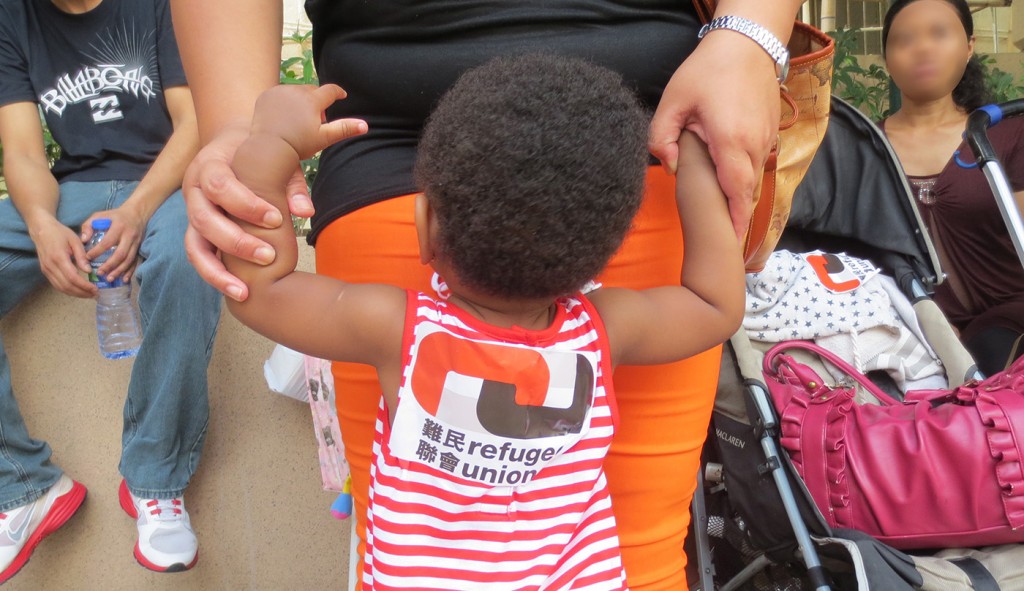
It is the government’s duty to support refugees after they seek asylum. However it is the government that determines the timing of such filing according to the rule: “a person who is outside his country of his nationality and in Hong Kong may claim for non-refoulement protection only if the person is subject or liable to removal from Hong Kong.”
In other words, a refugee must first become an overstayer – somebody whose visa expired – before he or she can apply for asylum in Hong Kong. Prior to that day some refugees entered regularly through a border crossing, either when in possession of a valid visa, or when granted visa-free access.
After lodging USM protection claims with Immigration Department and being released on their own recognizance, refugees become eligible for welfare assistance from the Social Welfare Department. In the meantime, most newly arrived refugees experience the problem of securing room and board in our expensive city, while they wait weeks, if not months, for Recognizance Forms.
Vision First previously raised concerns about the absence of a comprehensive intake strategy for asylum seekers, which leaves newly registered claimants in an appalling state of destitution, without food and lodging. Few observers would disagree that the Hong Kong Government has a duty to prevent unnecessary suffering within this vulnerable group without a local support system.
However, this humanitarian crisis starts earlier, when prospective refugees are restricted from seeking asylum by the Immigration Department, because they still hold valid visas and are not yet subject to removal. In this respect, visitors are generally granted visas (or visa-free entry depending on country of origin) ranging between 14 and 90 days, which for many refugees turns into a period of agonizing hardship.
Vision First queries if it is not preferable for the Immigration Department to accept asylum applications irrespective of visa terms from individuals who manifestly require immediate protection. Such persons might have strong evidence supporting the urgent filing of claims and Immigration should have the flexibility to expedite the acceptance of their claims.
Since Immigration has the power to revoke visas and remove visitors who are no longer welcome, then surely Immigration should also have discretionary powers to protect asylum seekers who demonstrate an urgent need for protection and assistance. In our view, it is arbitrary that highly vulnerable prospective claimants should suffer the entire duration of an unnecessary tourist visa issued by the very department that should protect them.
This week we came across two particular cases that present a disturbing picture:
Case one – A male asylum seeker was turned away by Immigration because he held a two-week permission to stay. He has been living in a tent at the beach and scrabbling for food in dumpsters. He feared for his life when a typhoon hit and he huddled behind trees for safety. He candidly admitted stealing food in shops to suppress pangs of hunger, “If they arrest me, I will tell the judge I had nothing to eat for days.”
Case two – An African mother with two young children was found crying outside the UNHCR by a Refugee Union member. The doors had apparently been slammed in her face after she was told to approach Immigration for assistance. She lamented that her visa stopped her from seeking asylum and getting help. She was homeless before the Refugee Union offered her a sofa in their office. She held her crying babies in both arms as she tearfully asked, “Where can I get food for my babies?”
Vision First argues that current restrictions on claiming asylum not only cause needless hardship to desperate refugees, but make them act illegally, thus reinforcing stereotypes that all refugees are overstayers and illegal migrants who should be treated harshly for challenging law and order. Such restrictive policies also put public safety at risk, as hungry refugees-to-be might commit crimes they would not ordinarily commit if adequate protection and welfare were available.
Looking at this situation broadly, Vision First suggests that, where sufficient justification is found, Immigration could process urgent asylum claims while tourist visas are extent, or suspended for the purpose of facilitating applications. Is it reasonable that visas issued by Immigration prevent the same department from accepting urgent claims without a mechanism to overcome this? Is this the case of the visa section preventing the asylum section (RAS) from carrying out its duties? It seems there is space to improve the rationale of this internal arrangement before the relevant laws are amended in future.


